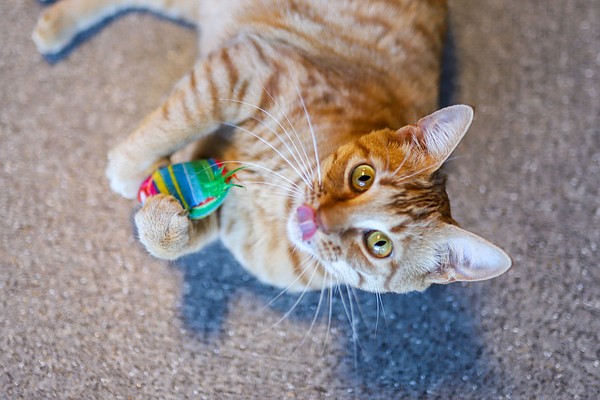BBB Scam Tracker online shopping scam reports have exploded during the COVID-19 pandemic, and pet scams account for 35% of those reports in 2021. Although reports of scams on pets are down slightly from 2020, they are expected to double this year for those of 2019, and more than four times more than those reported in 2017, when BBB published its first investigation into online scams concerning puppies.
Con artists frequently take advantage of the high demand during the holidays by posting adorable photos of pets wearing sweaters and party hats. When a potential pet parent pursues registration, the scammer refuses to let the consumer meet the pet before purchasing – often indicating that the reason relates to COVID-19 safety precautions. The scammer claims he must use a pet delivery agency, often naming an airline. BBB Scam Tracker has received numerous reports of bogus web pages masquerading as real companies for this purpose. The scammer may also charge a fee for vaccinations or other last minute “needs”. In the end, the animal does not exist, and the consumer has lost money and an emotional investment.
The largest group of victims by age is the 25-35 age group, followed by the 35-44 age group. The average financial loss reported to BBB Scam Tracker was $ 1,088. While 82% of pet scam reports were from dogs, others were from cats, birds and iguanas.
The tactics used in pet-related scams continue to evolve. Crooks increasingly demand payment through hard-to-find cash apps like Zelle, Google Pay, Cash App, Venmo, and Apple Pay. A review of BBB Scam Tracker data found that numerous reports mentioned Zelle as a payment method involving the purchase of pets online.
A Saint Louis wife told BBB Scam Tracker in April 2021 that she paid a $ 500 filing via Zelle for a Cavapoo puppy she had seen online. The seller sent him several photos, then requested the puppy’s balance through Zelle – a transaction that the potential buyer’s bank said was fraudulent. The woman requested a refund but never received it, and the puppy is still listed on the seller’s website.
A Castro Valley, California, a woman said she lost $ 1,350 in the summer of 2021 when she and her husband tried to buy a Samoyed puppy online. The woman told BBB Scam Tracker that she had signed a contract to buy a puppy from a “breeder” who had contacted her by email; she paid “the breeder” $ 1,350 via Zelle. She said she knew she had been scammed when the “transport company” responsible for delivering the puppy contacted her and asked her to rent a temperature-controlled crate.
Pet scams are a global problem, with the UK and Australia reporting a sharp increase in pet scam complaints in 2020 and 2021. Many pet scams originate from Cameroon, according to data from Petscams.com, which tracks and lists puppy-related scams.
Law enforcement agencies in the United States and abroad have worked to apprehend the pet crooks. The US Department of Justice announced in december 2020 criminal charges against a Cameroonian national residing in Romania; among other tactics, the suspect claimed the animals he was selling had COVID-19 and asked potential buyers to purchase a “vaccine guarantee document.”
BBB recommendations for buying pets online:
- See the animal in person before paying any money. If you’re worried about the pandemic, consider a video call with the seller so you can see the seller and the animal for sale at the same time. Scammers usually won’t comply with the request, and this can help avoid money loss and heartache.
- Do a reverse image search of the photo of the animal and look for a distinctive phrase in the description.
- Research the breed to get an idea of the right price in the study. Think twice if someone advertises a purebred dog for free or at a very discounted price. It could be a fraudulent offer.
- Visit local animal shelters and check out their websites for available adoptable pets which you can meet by appointment.
- The media and the public can help educate those who research pets online by sharing the BBB’s tips and studies.
Who to contact if you are the victim of a pet scam:
- Petscams.com – petscams.com/report-pet-scam-websites tracks complaints, lists puppy scammers, and works to get fraudulent pet sales websites removed.
- Federal Trade Commission (FTC) – reportfraud.ftc.gov to file a complaint online or call 877-FTC-Help.
- Better Business Bureau – BBB Scam Tracker to report a scam online.
- Canadian Anti-Fraud Center – anti-fraud center-fraud center or call 1-888-495-8501 for scams involving Canada.
- Your credit card issuer – report the incident if you shared your credit card number, even though the transaction was not completed.
About BBB
For over 100 years, the Better Business Bureau has helped people find businesses, brands, and charities they can trust. In 2020, people turned to BBB more than 220 million times for BBB company profiles on 6.2 million companies and charity reports on 11,000 charities, all available for free on BBB. org.
SOURCE IABBB
 Christ Yoder
Christ Yoder



